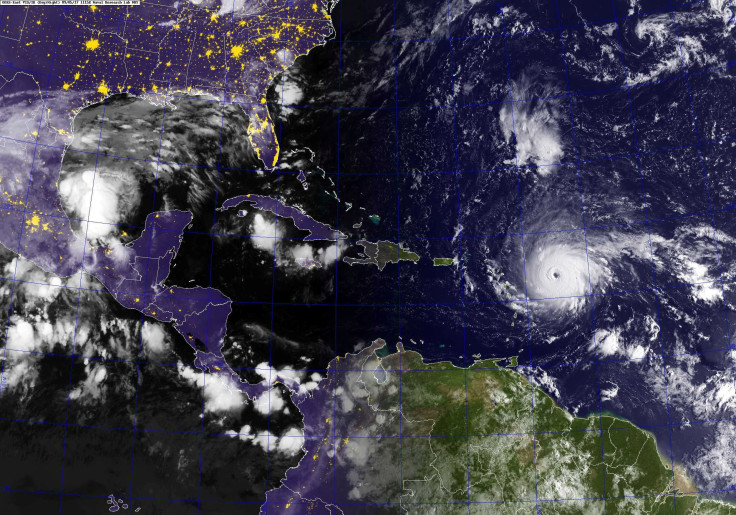Dangerous Hurricane Nears Florida, State Led By Climate-Change Deniers

While Texas has barely begun to recover from the devastation of Hurricane Harvey, Florida prepares to face the strongest hurricane ever recorded in the Atlantic basin outside of the Caribbean Sea or Gulf of Mexico. But in that state, one of the nation’s most vulnerable to the effects of global warming, the government is steeped in climate-change denial.
“I've not been convinced that there's any man-made climate change,” said Republican Gov. Rick Scott in 2010. Four years later, Scott dodged questions on global warming, saying, “I’m not a scientist.” The governor expressed support for President Donald Trump’s decision to leave the Paris Climate Accord this year.
Florida state House speaker Richard Corcoran (R) has refused to answer questions on whether man-made climate change exists. Senate President Joe Negron (R) does acknowledge some level of human-caused global warming, “...but I don’t subscribe to the apocalyptic view that human beings are destroying the environment through climate change.”
Scientists predict that by 2060, the sea will have risen by two feet, putting much of Miami-Dade and Monroe counties under water. Flooding, and the speed of sea-level rise, have increased over the last decade. An intermediate estimate from a July study by the Union of Concerned Scientists predicts that by 2060, 29 percent of Miami Beach will be subject to “chronic flooding,” when high tide floods 10 percent or more of a community’s usable, non-wetland area roughly twice per month.
In 2015, the Florida Center for Investigative Reporting discovered that during Scott’s first term as governor, officials in the state Department of Environmental Protection (DEP) ordered DEP staff not to use the terms “climate change,” “global warming” or “sea-level rise” in any official communications, emails, or reports. And the ban on using “climate change” terminology extended beyond the DEP; after the initial report, employees from agencies including the Department of Health and the Department of Transportation came forward with similar accounts.
After becoming governor in 2011, Scott appointed shipbuilding executive Herschel Vinyard Jr. to head the DEP, and shortly afterwards, employees were directed to refrain from using these terms. Under Vineyard, who resigned in late 2014, the department was mired in controversy as Vineyard got rid of long-term employees and hired people who had consulted for “ developers and polluters.”
If you're in Irma's path, this is a worst-case scenario. You've never experienced a hurricane like this. Stronger than Andrew or Katrina. pic.twitter.com/GXbhFqRgLm
— Eric Holthaus (@EricHolthaus) September 5, 2017
The ban on terminology relating to global warming embodied a new direction for the DEP, which did not enforce laws to protect the environment, according to a former DEP attorney. According to Scientific American, experts and local officials in Florida said the Scott administration has hampered community efforts to prepare for extreme weather and worsening flooding.
The governor has misrepresented state efforts to combat sea-level rise, claiming in 2014 that the state spent $350 million in the Keys and the Miami area. This claim earned Scott a “ mostly false ” rating from PolitiFact, which explained that of that $350 million, $100 million went towards a sewer system and still more paid for “typical beach maintenance and flooding-related projects.”
At the start of hurricane season this summer, Scott avoided questions about Trump’s proposed 22 percent cut to the budget of the National Oceanic and Atmospheric Administration’s Office of Oceanic and Atmospheric Research, which runs the National Hurricane Center.
Meanwhile, warming temperatures are contributing to the intensity of hurricanes. The recent Hurricane Harvey, for example, quickly increased its intensity when it crossed “the unusually warm Gulf waters” before making landfall, according to the Union of Concerned Scientists.
Hurricane Irma, one of the strongest hurricanes in recorded history with wind speeds up to 185 miles per hour as of Tuesday afternoon, could hit the coast of Florida this weekend. Miami is considering a partial evacuation as early as Wednesday.
© Copyright IBTimes 2025. All rights reserved.






















